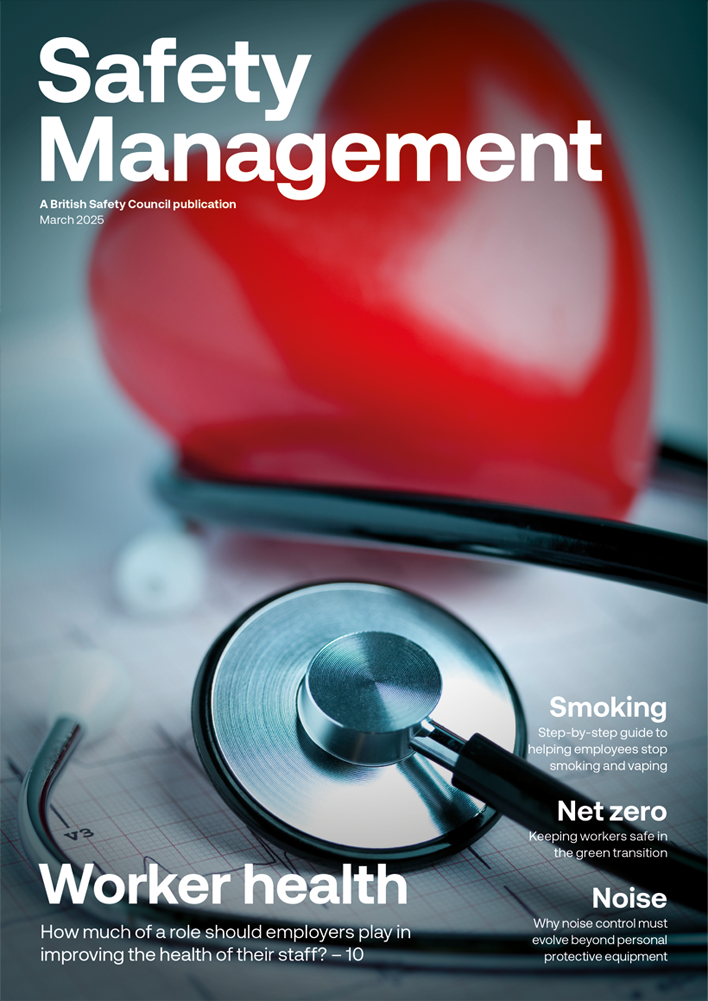Now that electioneering is well and truly underway in the UK, in the run up to 4 July, I know it may be the last thing you want to hear more about. But given the polls and the lively nature of the debate so far, this has the potential to be one of the more historic and memorable elections.
Opinion
A historic moment, in more ways than one
So far, at least, it is proving to be something of an eventful campaign, on all sides. Though I am hoping, for Ed Davey’s sake, his party has risk assessed his various stunts!
 The UK General Election will take place on 4 July. Photograph: iStock/benedek
The UK General Election will take place on 4 July. Photograph: iStock/benedek
This year is also a big one for our sector as, on 31 July, it will be half a century since the Health and Safety at Work Act came into force in 1974. Its legacy is felt today, in every single workplace, right up and down the land.
The Act brought together a patchwork quilt of different laws under one umbrella and for the first time covered all industries. This meant the health and safety of millions more workers were protected, and it was now the responsibility of all employers to undertake adequate assessments of the risks their workplace posed, and to ensure the right safety controls were in place.
Because it was a framework, it has been able to form the basis for health and safety legislation ever since, allowing regulations and enforcement to evolve as the workplace itself has changed. Simply put, the Health and Safety at Work Act revolutionised workplace safety in the UK and set a new standard which many other countries have since followed.
We know the Act has been a success, as the number of annual workplace fatalities has fallen from 651 in 1974 to 135 in 2023. The number of non-fatal workplace injuries has also dropped by over 80 per cent since 1974. Year after year, our workplaces have become safer.
 British Safety Council chief executive Mike Robinson FCA: "It is only by ensuring that our regulators have the resources and powers they need to keep workplaces safe, that we can ensure the UK retains its position as a world leader in health, safety, and wellbeing."
British Safety Council chief executive Mike Robinson FCA: "It is only by ensuring that our regulators have the resources and powers they need to keep workplaces safe, that we can ensure the UK retains its position as a world leader in health, safety, and wellbeing."
But while regulation is the foundation of this success, the regulator remains the cornerstone of upholding it. Hand in glove, a strong regulatory footing and a well-armed regulator make workers healthier, safer, and happier. That’s why, in our pre-election Manifesto, we have called on policymakers to provide the funding that the Health and Safety Executive needs to face the challenges of the future, head on. This includes the new Building Safety Regulator, as well as local authorities, where they hold responsibility for inspection and regulation.
It is only by ensuring that our regulators have the resources and powers they need to keep workplaces safe, that we can ensure the UK retains its position as a world leader in health, safety, and wellbeing.
However, a combination of cuts in funding and resources, as well as external events, such as the pandemic, has created a perfect storm for the country’s health and safety regulators, which now only increases the risk to health, safety, and wellbeing of workers.
Just consider that, between 2010 and 2019, the Health and Safety Executive (HSE) lost some 45 per cent (in real cash terms) of its operating budget as well as a reduction in staff of 35 per cent. There were 18 per cent fewer Health and Safety Inspectors by the end of that period.
With fewer staff, stretched resources, and a growing workload we risk rowing back on the good work that’s been done since 1974. This is not a message we can, or want to, send to the world.
Before 2010, annual inspections by HSE totalled more than 25,000. Proactive inspections are currently running at around 16,000 to 17,000 per year, while HSE’s business plan for 2023/24 sets a target to complete just 14,000 – almost half the number being completed in 2010.
We are calling on the next UK Government to make the next 50 years even safer than the last. That means maintaining the highest international standards and prioritising regulatory alignment, rather than divergence. It is only by doing so that we will truly reduce burdens on businesses and boost our trade, and standing, around the world.
OPINION

Beyond compliance: why noise control must evolve beyond PPE
By Gill Cussons, Noise & Vibration Solutions on 13 March 2025
Engineering solutions for noise control on plant, machinery and tools are often straightforward, low-cost and bring financial savings themselves, so it’s time employers moved away from the default position of purchasing and issuing personal hearing protection to workers.

Navigating a changing world
By Mike Robinson FCA, British Safety Council on 03 March 2025
Human history has hung on a timeline of change and every generation has been asked to answer the same call, to adapt and evolve. From the printing press to the PC, change has continuously re-defined both the work we do and how we do it. Where the future differs from the past is the pace at which change will impact society.

Noise-induced hearing loss: time to make it personal?
By Neal Hill, UKHCA on 28 February 2025
This year, the Health and Safety Executive (HSE) celebrated its 50th anniversary, a milestone in its long-standing mission to protect lives and improve workplace safety. 2025 is also the 20th anniversary of the Control of Noise at Work Regulations (2005). It’s also now a year since I wrote an opinion piece for Safety Management arguing that we need to harness new technology to prevent noise-induced hearing loss (NIHL).¹ So, what has happened in the meantime?



